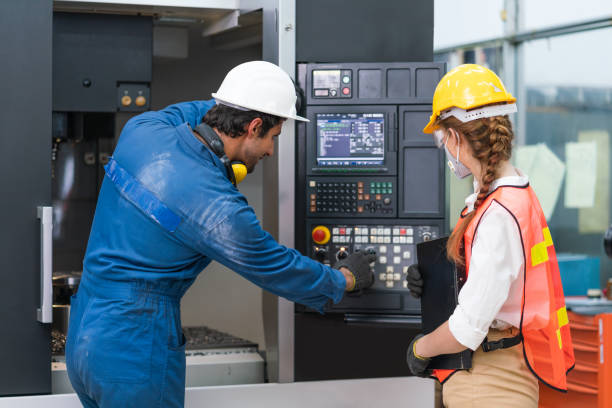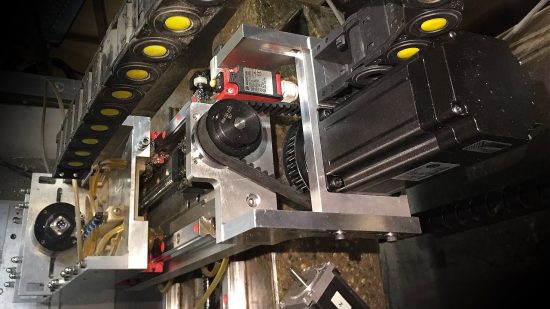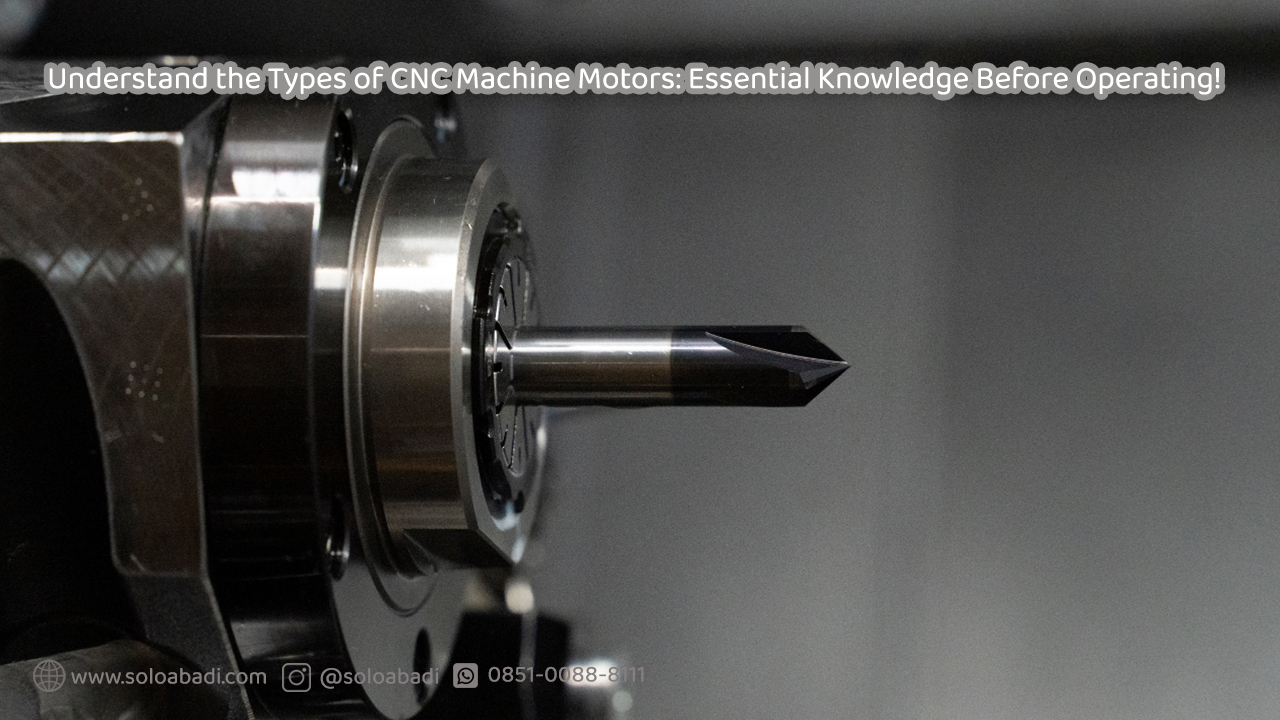CNC machines are a key technology in the manufacturing world, capable of producing components with high precision through computer control. One crucial component in CNC machines is the motor. Understanding the different types of motors used is essential before operating a CNC machine.
The types of motors in CNC machines have different characteristics and functions, ranging from controlling speed and precision of movement to determining strength and accuracy during cutting processes. Therefore, understanding the types of motors in CNC machines is fundamental knowledge that every operator must have.

Read More: Knowing the CNC Machine Maintenance Process in the Manufacturers
The Role of Motors in CNC Machines
Motors are key components in CNC machines, responsible for moving various axes and cutting tools with high precision. Additionally, motors drive the movement of different axes and cutting tools, ensuring precise and accurate machining.
Each axis on a CNC machine, such as the X, Y, and Z axes, is driven by the appropriate motor, ensuring that the cutting tools move with the necessary speed and accuracy to produce high-quality products. Without high-quality and properly selected motors, the CNC machine’s movement may not function optimally, potentially affecting the final result of the manufactured product.

How to Choose the Right CNC Motor
Choosing the right motor for a CNC machine is crucial as it impacts both performance and the final production results. Here are some factors to consider before selecting a motor for a CNC machine:
1. Type of Motor
Two common types of motors used in CNC machines are stepper motors and servo motors. Stepper motors are suitable for applications that require simple position control and lower costs. On the other hand, servo motors offer advantages in speed and high precision, making them a better choice for applications that demand high accuracy.
2. Torque and Speed
Considering the required torque and speed is crucial. Stepper motors typically provide good torque at low speeds, while servo motors offer more stable performance across a range of speeds.
3. Power and Size
When selecting a motor, it’s important to consider its power relative to the size and type of CNC machine being used. Choosing an unsuitable motor can significantly affect the machine’s performance.
Read More: The Things That Need To Be Considerate To Avoid Work Accidents in CNC
Written by: Pradhita Novwantama S. (Manufacturing Design – Politeknik ATMI Surakarta)


